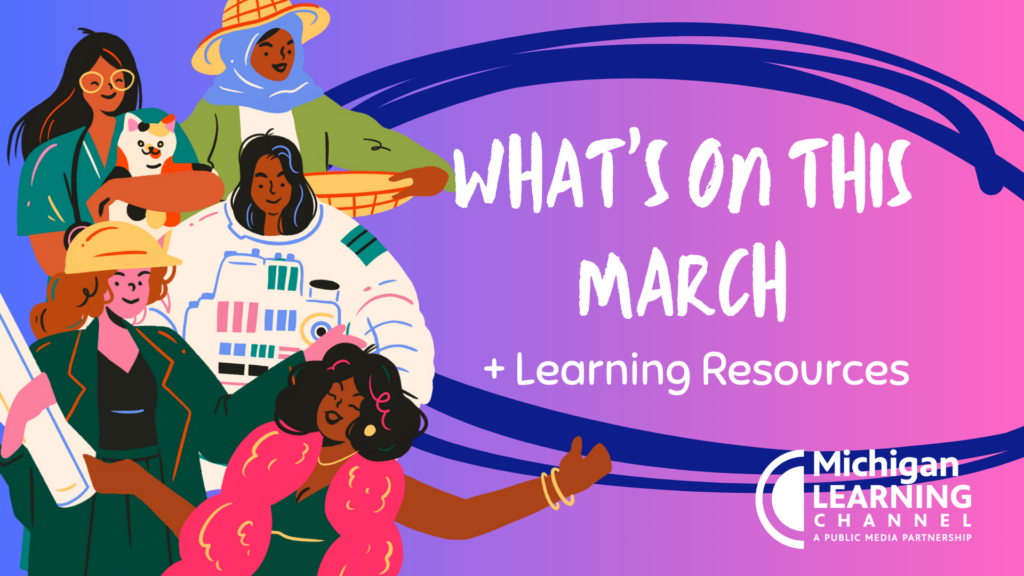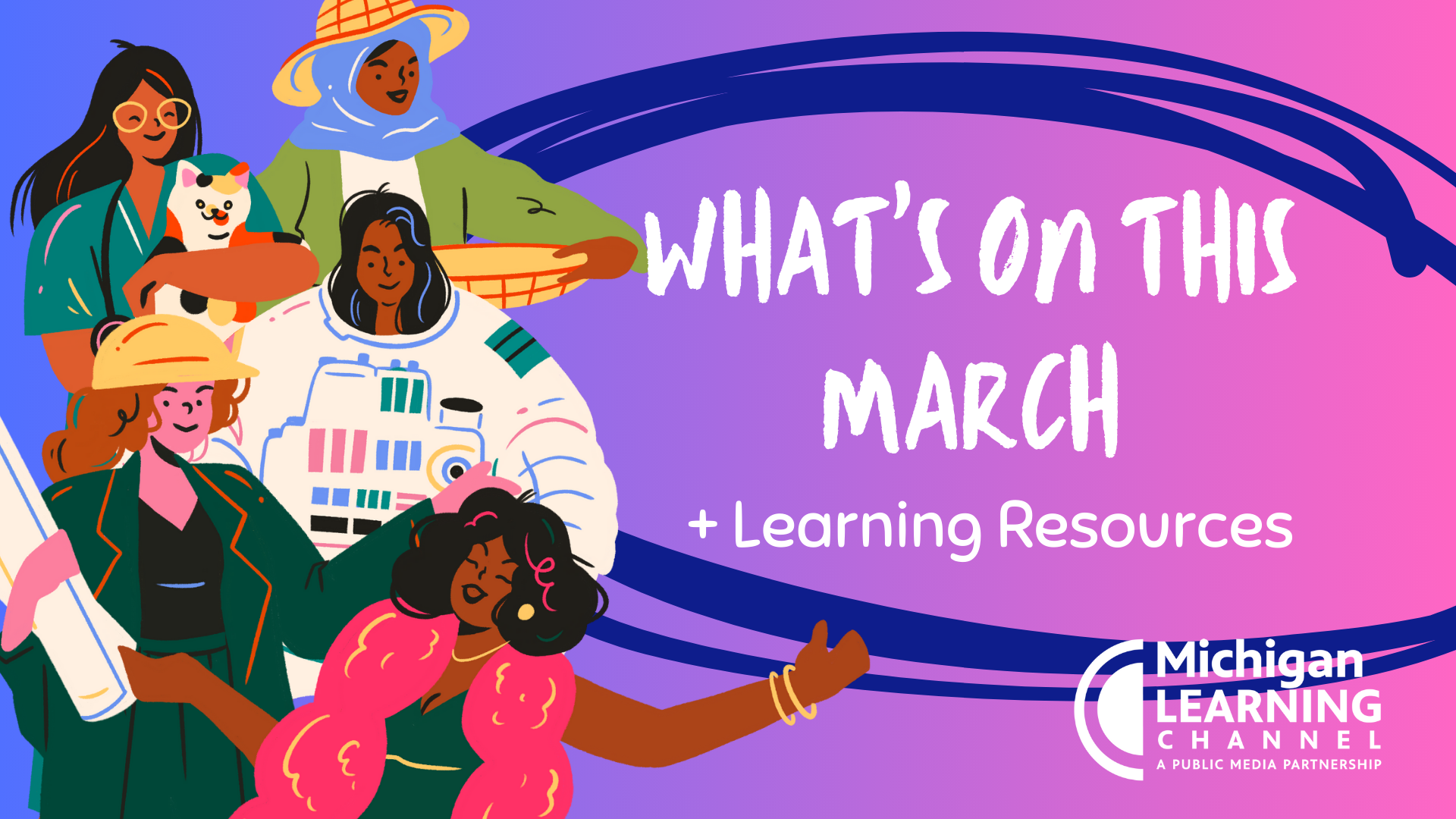
See what monthly themes we’re highlighting, find something to watch, and extend the learning with activities from PBS LearningMedia.
Women’s History Month – Starts March 1
See our on-air offerings below. For more on-demand teaching resources about Women’s History Month, visit our Women’s History Classroom Resource.
Extra Credit Episode 305: Women’s History
Available on demand.
Student host Treasure helps us celebrate the incredible contributions women have made in science, math, literature, technology, and more.
Road Trip Nation: A Single Mom’s Story
March 5 at 8:00pm.
Follow along as Gabby, Kiera, and Maliaq—three single moms eager to explore how to find meaningful careers and navigate post-secondary success—travel across the country to talk with other single mothers who’ve found fulfilling work as microbiologists, professors, authors, artists, and more. Fueled by ECMC Foundation, “A Single Mom’s Story” shows how single moms can and should be empowered to seek out work that means something to them and their communities. Their stories and those of the inspiring people they meet are proof single mothers can accomplish anything they set their minds to.
Without A Whisper
March 12 at 8:00pm
Explore the untold story of how Indigenous women influenced the early suffragists in their fight for freedom and equality. Mohawk Clan Mother Louise Herne and Professor Sally Roesch Wagner shake the foundation of the established history of the women’s rights movement in the US joining forces to shed light on the hidden history of the influence of Haudenosaunee Women on the women’s rights movement.
Bonnie Boswell Presents: Saving Moms
March 19 at 8:00pm
Boswell’s latest conversation with leading experts examines why groups of women disproportionately experience higher mortality rates related to pregnancy and childbirth in the country. Boswell addresses disparities and contributing factors that result in poor health outcomes for mothers and babies as well as ways local public health professionals are combatting the national crisis.
Bring Her Home
March 26 at 8:00pm
Bring Her Home follows three Indigenous women – an artist, an activist, and a politician – as they fight to vindicate and honor their missing and murdered relatives who have fallen victims to a growing epidemic across Indian country. Despite the lasting effects from historical trauma, each woman must search for healing while navigating racist systems that brought about this very crisis.
Extend the Learning
Native Voices | American Passages: Authors – Discover backgrounds and biographies of the authors featured in the half-hour video Native Voices.
American Masters | The Street by Ann Petry: Black Single Mother Seeks the American Dream – In this video from the American Masters film Novel Reflections on the American Dream we meet Lutie Johnson, the African-American single mother heroine of Ann Petry’s novel The Street. The video gives an introduction to the novel and Lutie’s aspirations to find stability and independence in her Harlem neighborhood in the midst of race, class, and gender biases.
Women’s History: Activity Pack | History Detectives – Women have made vital but often little-known contributions to American history. These lesson plans and videos are based on History Detectives episodes that examine artifacts which provide clues to how women have been integral in the visual arts, in fighting political causes and on battlefields. They offer students opportunities to hold a history-based political convention, create visual arts designs, and do biographical research.
The Right to Work | Women’s Empowerment – In this lesson, students investigate the concept of unemployment and learn how it is currently reported in the U.S.. Students are presented with the fact that the right to work is a universal human right according to the United Nations; they can then apply this knowledge to better understand working conditions for indigenous women in Bolivia. After listening to various voices involved in the conversation, including the Bolivian president, union organizers, political advocates and the workers themselves, students research a political organization and create a media campaign.



